#technology
Uber Killing Off Autonomous Trucking Division
Uber is shutting down its self-driving trucks unit due to a lack of progress and the controversy surrounding its multi-million dollar acquisition of Otto in 2016. The firm was purchased with the intent of developing self-driving cargo haulers, potentially saving the trucking company a fortune by outsourcing driving jobs to robots. But it was slow to reach that goal and ran head-on with a serious distraction almost immediately.
Initially, things looked promising. Otto was famous for engineering a truck that hauled a trailer full of beer across 120 miles of Colorado highway without human intervention. But it found a different sort of fame after its founder, Anthony Levandowski, took over as head of Uber’s self-driving car research and Waymo faulted him with handing over trade secrets.
As a former engineer for Google’s autonomous vehicle project (which would later evolve into Waymo), Levandowski was privy to sensitive information he was later accused of selling as part of the Otto buyout.
Rental Companies Should Be Worried About What's Gaining in Their Rear-view
For a product or service to dominate a body of customers, another must fade to the background. Think of direct and alternating current, or perhaps digital cameras and 35mm film.
It gets a little fuzzier when the topic of personal transportation arises. Some modes of transport are so much more more useful than what they replaced (cars and horses, jetliners and ocean liners) that the preceding mode is relegated to a niche category. In others comparisons, the usefulness of a certain mode remains strong only in certain areas. Think trains.
But in a car-based world, consumers now have more options than ever in how they get around when their personal vehicle is left sitting at home. A recent survey shows just how pleasant regular car renters find app-based ride-hailing services, and traditional rental companies would be foolish to not take note.
Ford Commits $4 Billion to the Future, Creates New AV Subsidiary
Ford Motor Company announced Tuesday that it has formed formed a subsidiary — Ford Autonomous Vehicles LLC — devoted entirely to autonomous vehicle development. That’s probably the catchiest name we’ve heard since Bank of America Corp or Waste Management Inc. However, you don’t need a clever moniker when you’re dumping $4 billion into a project, which Ford intends to do through 2023.
With all the current drama and distrust surrounding self-driving cars, we thought there was a chance automakers would cool off on pushing for it so aggressively. But while some OEMs curbed their futuristic rhetoric ever so slightly, practically everyone else kept the pedal to the metal — an analogy that will lose all meaning once computers drive us everywhere.
Let’s see what The Future™ looks like in and around Dearborn.
NHTSA Deputy Administrator: There's No Need to Regulate Autonomous Cars
Heidi King, deputy administrator of the National Highway Traffic Safety Administration, claims it’s too soon to begin imposing rules on self-driving vehicles. Thus far, the NHTSA as taken a supremely lax posture on handling autonomous vehicles in the hopes that a softer touch will assist in their swift development.
However, a cluster of fatal incidents involving advanced driving technology created fresh paranoia within the government.
While the argument could be made that those accidents demand a response from federal regulators, it’s also clear the government doesn’t have a firm grasp on the technology. Likewise, there’s little consensus among automakers that have only recently begun discussing how these vehicles should be standardized, and loads of conflicting opinions exist on the matter of safety. In the short term, advanced electronic aids allow motorists to become worse at driving. But, if fully autonomous vehicles function as intended, their long-term safety benefits could be immense.
The NHTSA claims the resulting confusion means it’s too early in the process to make any kind of definitive rulings.
Maybe Autonomous Vehicles Don't Have to Look Like Steaming Sacks of Garbage
Thank God we don’t have to look at that Google self-driving car anymore. You know the one — shaped like an unhappy egg wearing a little hat? That one. The one that inspired visions of a future where life is so sterile and miserable that it wouldn’t be hard to imagine masses of people throwing themselves on the road in front of these pod-like commuting appliances.
Still, even as self-driving technology advances, we’re treated to concept vehicles that don’t exactly stir the soul. Some recent designs deserve kudos, but many still resemble motor pool rejects from A Clockwork Orange, terrifying gearheads and libertarians alike.
It doesn’t have to be that way, claims one automotive supplier. You can have your sexy car and still tell it to drive you around.
A Safer Route Home, but Is the Customer Always Right?
Depending on who you ask, Uber is either a godsend or a harbinger of civilization’s downfall. When the ride-hailing app went live in my corner of the world, disgruntled taxi drivers threatened violence against Uber drivers found waiting for a fare. I still get in the front seat out of habit. Cab drivers in other cities weren’t happy about their monopoly being threatened, either.
Elsewhere, Uber is a common way for urbanites to get around and, despite a number of past controversies involving the company and its drivers, people seem just fine with its presence. Naturally, for some users, safety remains an issue. But what if you could choose not only the route taken, but also the make and model of the vehicle showing up at your door? If the thought of riding in an old beater turns you off, why not wait until the closest vehicle with a five-star safety rating shows up? A new patent filing shows Uber wants to make that happen.
BMW Rep: Government May Never Allow for Autonomous Cars, Computerized Life and Death Decisions
BMW’s past promises include a pledge to help keep drivers driving in the brave new world of autonomous vehicles. However, it hasn’t entirely sworn off self-driving technology. The company finds itself in a tricky spot, as it’s seen as both a luxury automaker and a performance brand. But it can’t claim to be “The Ultimate Driving Machine” if it doesn’t allow customers to drive.
Automakers and tech firms pushed relentlessly for autonomous driving, making claims that a self-driving nirvana was just around the corner. But current technology proved less than perfect in practice and modern autonomous vehicles require constant human involvement to operate safely, just like any normal car. Despite making strides, the industry seems torn on how to appease everyone.
The government is even more in the dark. While lawmakers initially agreed with industry rhetoric (that autonomy will save lives and usher in a new era of mobility), recent events sparked skepticism. There aren’t many new regulations appearing in the United States, but there also isn’t any clear legislation to help decide who’s held liable when the cars malfunction. A lot of what if questions remain unanswered.
BMW thinks this will be the main reason why autonomous cars fail.
Talk to the Chair: Ford Patents Voice-activated Seats
Apparently, the increasingly complex array of buttons on the side of a modern driver’s seat has become too much for humans to process. There’s just too many ways to adjust our seating position (though not in this writer’s car).
What if, instead of pressing buttons and switches, we could bark orders or use a touchpad? That’s the future Ford envisions.
Trade War Watch: U.S. Preparing to Limit Chinese Investment
The Trump administration is planning to impose incredibly restrictive investment limits against China. While the barriers could be argued as fair, considering China has some pretty serious restrictions of its own, the timing isn’t great. Treasury Secretary Steven Mnuchin pursued a less confrontational approach toward China after the nation showed some lenience in earlier promises to open its automotive and tech sectors through reduced tariffs, eventually eliminating state-mandated joint partnerships.
This move will no doubt make his job a lot more complicated.
It seems that the limits would restrict certain Chinese companies from investing in U.S. technology firms and block additional tech-related exports to Beijing. Among the industries most affect are robotics, aerospace, and automobiles — which have been labelled by the administration as a threat to economic and national security.
Uber Driver May Have Been Watching TV Before Fatal Collision: Police
The mash-up of fledgling technology that requires human vigilance to ensure safety and our natural inclination to become distracted by mobile devices appears to be the cause of the fatal Tempe, Arizona Uber crash in March.
According to a lengthy police report obtained by Reuters, the driver of the autonomous Volvo XC90 operated by Uber Technologies may have been watching the TV show The Voice in the moments leading up to the collision. The impact killed 49-year-old Elaine Herzberg, who was crossing the darkened street with her bicycle.
Audi Now Has Permission to Test Flying 'Cars' in Germany
The flying car repeatedly proves itself as the dumbest idea since the industrial revolution kicked off. With the exception of takeoffs and landings, aircraft don’t need roads and automobiles aren’t really engineered for the sky. They’re typically far too heavy and have aerodynamics intended to keep them on the ground. A good car does not make for a good plane, and vice versa.
While a few flying cars do exist, they’re really just airplanes modified to allow for car-like earthbound driving. Functional, but not particularly effective on the road. That’s why the industry is shifting toward designs more akin to helicopters. The newest trend is to supersize drones and affix them to the top of lightweight self-driving automobiles.
That appears to be the direction Audi is headed in its partnership with Airbus. But surely this is engineering at is most masturbatory. If you’ll excuse the pun, these kinds of projects never really get off the ground. We see concept designs, hear some lofty promises, and then nothing ever comes of it. Moller International has been working on its SkyCar for decades and now the company is trading at a penny per share with nothing to show for itself but a concept capable of covering a couple feet from the pavement.
What does Audi have that’s so different?
For All Its Talk of Mobility, Ford Says It's Fine With FCA and GM Leading the Robocar Pack
If recent statements from Ford Motor Company were any indication, you’d think we were living in some futuristic society where our grandparents drove Nucleons and the need for a personal vehicle was almost nil. Yes, too much “mobility” talk gets under the skin.
That said, it’s Ford’s domestic rivals who are actually building and fielding production vehicles that drive themselves — and setting up businesses and partnerships that could make the automakers a bundle on the side. By next year, both General Motors and Fiat Chrysler could have self-driving vehicles roaming America, earning their companies money.
Be our guest, Ford claims. There’s bigger things to worry about.
Maybe Tesla Vehicles Could Use a Seat-shaker Feature…
Hell, maybe they could use a driver monitoring camera, too. In other words, Cadillac’s Super Cruise system. How else would one react to seeing this video of a Tesla employee apparently dozing behind the wheel of a Model S while flying down a California highway?
The video, uploaded by YouTube user Mike Cagulada and posted on Twitter by Amir Efrati of The Information, was apparently shot near Tesla’s Fremont assembly plant on June 4th. By the looks of it, this driver isn’t bobbing for apples — he or she is asleep.
The Car As a Wallet: Hyundai Adds Food, Gas, Parking for In-Car Payment Plan
Corporate partnerships and integrated purchasing solutions are all the rage right now in the auto industry. While it’s easy to miss the appeal, as credit cards are pretty easy to use when cash isn’t an option and most modern phones have similar applications, car-based transitions are on the rise. Now, Hyundai’s joining Xevo to provide its own branded in-car purchasing platform.
Like similar services, Hyundai owners will be able to sync their credit card with the vehicle and use it to locate and buy food, fuel, and parking (from participating companies). Also under development is the Hyundai Digital Wallet, “which stores a customer’s payment information and facilitates secure processing, for a seamless checkout experience to enable in-car commerce.”
Hyundai hasn’t established an official launch date — or nailed down the final design — but it insists the system is coming. Initial partners include Chevron and Texaco-branded gas stations, Applebee’s To Go and ParkWhiz. Out of the three, the parking solution seems the most useful by far. But if you absolutely refuse to get out of your seat to procure a bundle of mozzarella sticks, Hyundai (like GM) will eventually have you covered.
Ford to Launch Data Monitoring/Analytics Program on Commercial Fleets
We’ve prattled on before about how General Motors sees data mining as its next big business opportunity. While much of our take focused on the risk that customers might lose their privacy and become both commodity and consumer, it would be stupid to suggest it isn’t also a highly lucrative business strategy.
Social media outlets sell your personal information on a daily basis and other industries see potential in that. GM isn’t the only automaker jumping on the bandwagon, it’s simply the one with the most transparent blueprint.
Ford recently opened up about its own data strategy. The company previously announced large investments into data centers, stating its intent to equip 90 percent of its global fleet with modem connectivity by 2020. Ford Smart Mobility was also reorganized earlier this year, an effort that included the acquisition of two tech firms focused on transit data. The automaker split the group to focus on key areas: transportation data, marketing, tech development, and the management of previously established programs like FordPass and Chariot.
Ford obviously had a plan in the works for a while, but we didn’t know exactly what Ford’s execution would look like until now.






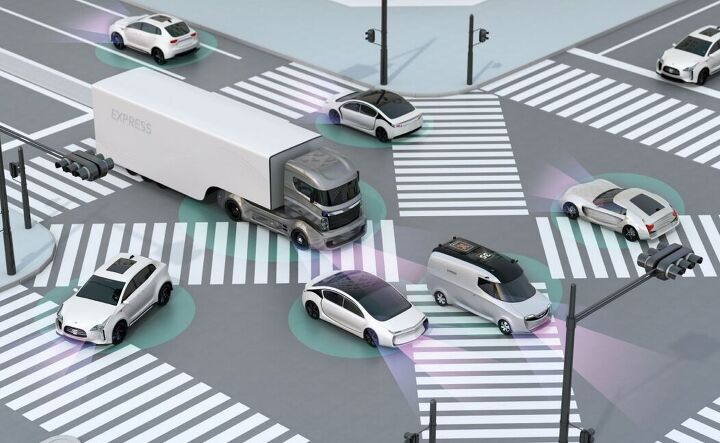
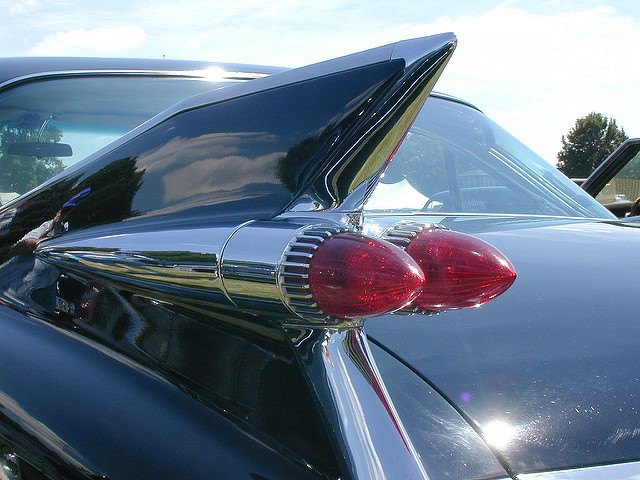



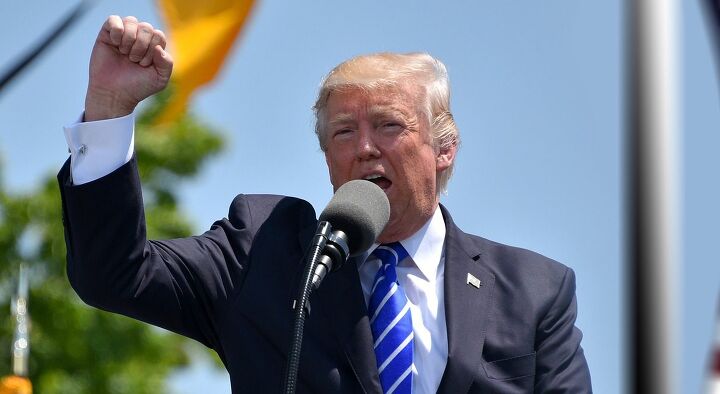
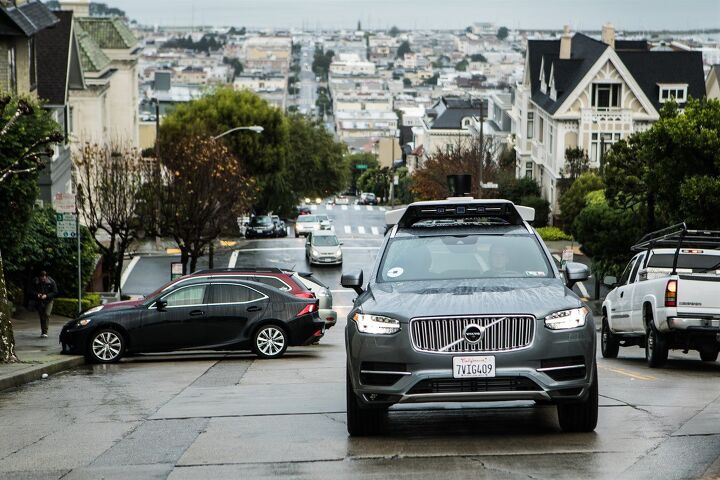
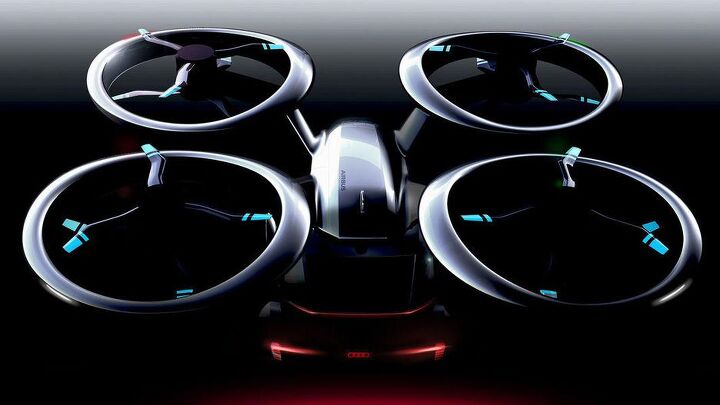
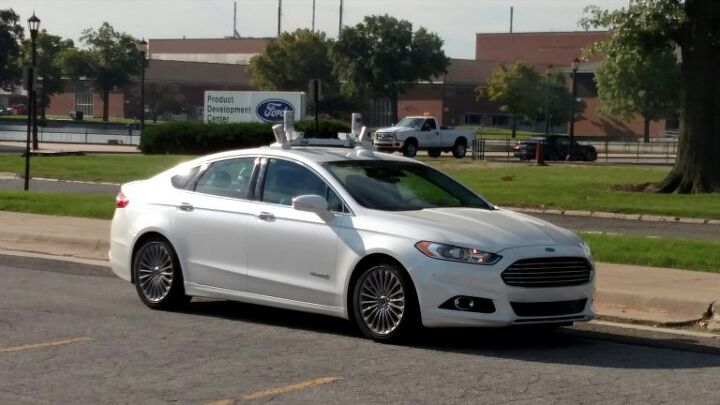















Recent Comments